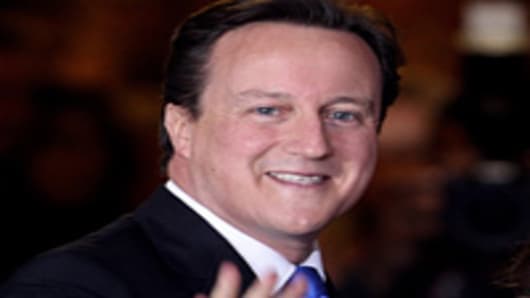David Cameron and Mitt Romney have a similar position on taxing the wealthy. They both say the wealthy need to contribute their “fair share” to their country’s fiscal problems. But neither has given specifics about what “fair share” or what taxes the rich will pay.
In an interview with the BBC, U.K. Prime Minister David Cameron blocked plans for a “mansion tax,” which would have taxed homes worth more than £1 million. He said that the tax would hurt everday savers and home-owners.
“I don't actually believe we should be a country where, if you work hard, so save and buy a house ... I don't want to be a country that every year comes after you with a massive great tax." he said.
He did, however, say that in light of the government’s plans to cut social services, the wealthy would also contribute more.
"We are going to take further action to make sure the richest people in this country pay a fair share,” he said.
When asked about specifics, however, he declined to answer. (Obama has been more clear in his plans to extract more money from the rich, to 39.6 percent, but those plans have not received enough support from Congress).
The question of taxing the rich has taken on added importance in Britain as the country struggles with slowing growth and rising deficits. There is growing media attention in the U.K. on the gap between the struggling British middle class and the super rich foreigners and finance chiefs in in London.
Mitt Romney, during last week’s debate, reiterated his position that he “will not reduce the taxes paid by high-income Americans.” He said that he would lower rates across the board by 20 percent and recover the lost revenue by eliminating or capping deductions. Any cap on deductions would hit higher-earning tax payers the most, according to new studies.
But Romney hasn’t detailed what those deductions would be. Last week, he floated different potential caps on deductions.
Romney and Cameron have a delicate political dance to perform: to appeal rhetorically to the populists who are calling for the wealthy to pay “fair share,” but to appeal economically to the high earners who create jobs and pay the largest share of taxes.
The reality, of course, will be in the details. And for now, those remain unknown.
-By CNBC's Robert Frank
Follow Robert Frank on Twitter: @robtfrank



